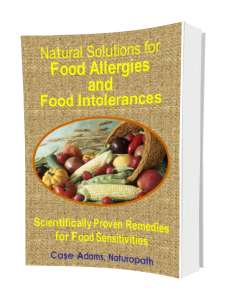Why GMO Bananas aren’t Solution for Vitamin A Deficiency
A new announcement from Australia has GMO-advocates and GMO-opponents debating the benefits of GMO foods with respect to potentially boosting the availability of vitamin A among poor people of the world.
But are there downsides to GMO bananas or GMO golden rice for that matter?
The first harvest of GMO bananas was recently announced, revealing a genetic manipulation that increases the content of vitamin A among the bananas.
Because there are deficiencies of vitamin A among some poor countries, this is seen as a charitable project, evidenced by a $5 million grant from the Bill Gates-funded Grand Challenges in Global Health Initiative.
So scientists from Australia’s Queensland University of Technology figured out how to genetically modify bananas to boost the vitamin A content.
So how could this be a problem? We’re solving a vitamin deficiency right?
Theoretically. But as the golden rice project shows, indigenous peoples do not want genetic engineering in their crops. India has been extremely active, for example, in rejecting the GMO Golden Rice, modified also to boost vitamin A content in the rice.
Two scientists wrote in the Scientific American, for example, that the flop of Golden Rice had costed India 1,424,000 “life years” since the crop was available since 2002.
The idea is that having the crop would have saved lives and years because of more vitamin A availability.
Wow, so easy.
Yet the bottom line is that these are new foods, and we don’t yet know the long-term effects of eating that new food. Will it be toxic?
Cornell University researchers stated it so:
“Levels of plant toxins may be of concern in genetically
engineered plants. First, it is possible that, during the process
of genetic engineering, the newly inserted gene could damage
another plant gene already present– a process called
insertional mutagenesis. This ʺgenetic damageʺ could
conceivably affect the levels of toxins the plant produces by
altering how and when its genes– perhaps genes responsible
for producing toxins– are turned on and off.”
Furthermore, one GMO food genetic mutation will not necessarily have the same physiological effects as another GMO food mutation. For example, while GMO corn has been genetically manipulated to be tolerant to the herbicide Roundup, the genetic manipulation in bananas is completely different. Different genes have been inserted into different locations of the DNA.
Certainly, research has revealed that some GMO foods present digestive issues.
Even if there is some evidence of safety for one GMO crop, there is no guarantee of safety for the next GMO crop.
Such an assumption would lead to the drastic conclusion that any genetic manipulation would be safe – which is technically false.
Therefore, the real issue here is not whether changing the vitamin A content in GMO bananas is a worthwhile endeavor. Sure, playing in the kitchen (er, lab) can cook up a host of possibilities. But are those possibilities safe? This question can only be answered many years after the genie has been released from the bottle.
The real issue at least in the case of bananas, is whether indigenous people in poor countries – many of whom have already been neglected and damaged by oppressive governments and corporations – will trust their farming livelihoods (and health) to a strange research corporation and the inevitable corporation that will distribute (and control) the new banana transplants? (Bananas are usually cultivated by splitting and planting the roots rather than planting seeds.)
As previous GMO ventures have been managed, this typically means the control of subsequent planting of the plant. In the case of seeds, GMO seed purveyors and researchers have created terminator seeds that will not produce a reproducible plant.
This strategy has bankrupted many small growers from poor countries who planted the GMO crops but could not afford to keep buying the new seed every year. They were used to using part of their crop each year to plant the next year’s crop.
As to whether this strategy will ensue upon poor banana farmers is not yet known. It is still in the research stages. But if history is any indication, some corporation will likely step in to “manage” (e.g., control) the distribution of the new bananas, which will likely have similar disastrous effects upon indigenous growers.
Such a scenario has been experienced by Bt cotton growers and others in Asia.
The other reason this strategy may bankrupt growers is because it is uncertain how consumers and their markets will accept the bananas.
In fact, many consumers around the world refuse to consume GMO foods. This fact became evident when Monsanto stopped their GMO wheat program in 2008 after wheat farmers and traders discovered that Japanese and European markets would largely reject buying GMO wheat – just as many have rejected GMO corn and soy from the U.S.
This also took place with the GMO papaya, which has hurt papaya farmers in Hawaii. Payapa markets in Japan, Europe and Canada don’t have much demand for GMO papayas or Hawaiian papayas, especially now that some 80% of Hawaii’s papayas are genetically modified varieties.
The issue goes back to consumers, who don’t trust foods that have been manipulated in laboratories. Even if some studies show assumed safety. One prime example is Bt. brinjal – which has caused an uproar in India.
The bottom line is trust.
If we want to help nourish poor people with vitamin A, we can always use the $5 million and other funding to assist farmers in planting carrots or other vitamin A-rich crops such as (non-GMO) papayas.
















